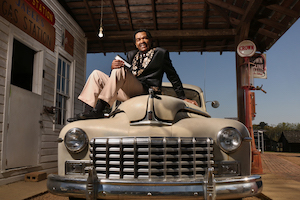
via JamBase
Bobby Rush shared a new single, “One Monkey Can Stop A Show.” The song is an update of the blues legend’s 1995 song, “One Monkey Don’t Stop No Show.”
“One Monkey Can Stop A Show” follows Rush’s 2022 Chicken Heads 50th Anniversary EP featuring Buddy Guy, Gov’t Mule and Christone “Kingfish” Ingram as well as his Grammy-winning 2020 album Rawer Than Raw. Bobby explained how the new single came to fruition:
“Nearly 30 years ago, I wrote and cut the record ‘One Monkey Don’t Stop No Show’ which is about a woman threatening to leave me. Though if she leaves me, I’m going to find someone new. This time, ‘One Monkey Can Stop A Show,’ is in a similar direction, but it means that the woman is not going to let me go. I need to change my actions and treat her better. She’d rather see me dead than see me go.
Why I cut this song is because the song ‘Keep on Rollin’’ is so big with the R&B artist King George today. He’s saying, ‘if you leave me, you ain’t gonna stop nothing, I’m going to keep doing what I’m doing. This train is going to keep on rolling.’ I was talking about in my song, she was so devastated she will stop the train and you. Not only does he call out my song ‘One Monkey Don’t Stop No Show’ in his song, but he also inspired me to come back to the table with a new version of my original.”


